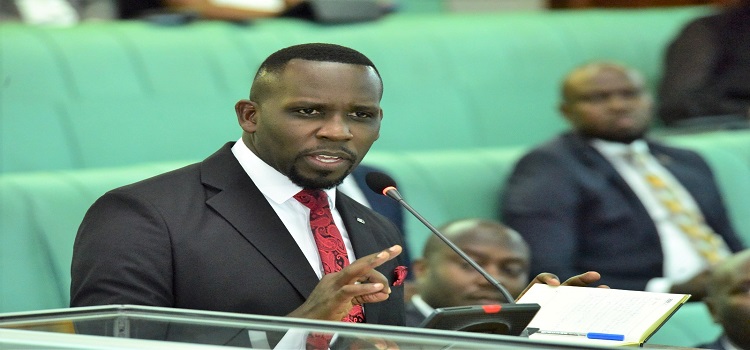During a charged parliamentary session on Wednesday, Leader of Opposition in Parliament, Joel Ssenyonyi delivered a scathing critique of the National Resistance Movement (NRM) as it marks 39 years in power.
In a speech that blended personal anecdotes with sharp political commentary, Ssenyonyi accused the regime of abandoning its foundational promises, branding its legacy as one of broken dreams and lost direction.
“My parents were overjoyed when the NRA took power in January 1986. There was chaos before, and their hope was restored when tranquillity returned,” Ssenyonyi recounted. “When I was born in December of that same year, they even debated naming me Yoweri in honour of the man who had brought peace. But after further reflection, they chose Joel, the English version of Yoel. That is how I got my name.”
However, Ssenyonyi’s reverence for the NRM’s early days quickly became an impassioned critique of its current state. “When I look at the 39-year journey of the man I was almost named after, I feel disturbed and disgruntled. The hero of yesterday has become a shadow of his former self,” he declared, holding up a copy of the NRM’s Ten-Point Program.
The Ten-Point Program, the manifesto that guided the NRA’s rise to power, became a focal point of Ssenyonyi’s address. He singled out Point Seven “elimination of corruption and misuse of power” as the regime’s most glaring failure.
“Honorable Speaker, we lose over 10 trillion shillings to corruption every year under this government,” he charged. “This isn’t my figure; it’s your government’s report. If I provided my own assessment, you’d accuse me of exaggeration. So, I challenge you to reflect on your performance and be honest about where you’ve failed.”
Ssenyonyi expressed alarm at the erosion of trust in key institutions, particularly the security forces. “There was a time when Ugandans held the UPDF in high regard. Research consistently showed citizens had more confidence in the Army than in the police. But I wonder if that survey were conducted today, would we see the same results?”
He also criticised the behaviour of some senior and junior officers, accusing them of disregarding the rule of law. “We’ve heard them threaten to hang political leaders and dismiss their own colleagues with derogatory terms. Such conduct is a stark misuse of the power entrusted to them,” Ssenyonyi said, referencing recent controversial remarks by military officials.
Turning to the judiciary, Ssenyonyi lambasted the increasing use of the Court Martial to persecute civilians. “This institution was created to discipline military officers, but today, it has become a tool for political witch-hunts. Civilians are detained for years without bail, and respected leaders like Dr. Kizza Besigye who once fought to bring this regime to power are now victims of its excesses.”
He cited cases of prolonged detention and denial of justice, painting a grim picture of a regime that had strayed far from its initial ideals.
As he left the floor of Parliament, Ssenyonyi issued a sharp challenge to the ruling party: “I hope, as you celebrate 39 years in power, you take a moment to reflect not just on your achievements, but also on your failures. Some things are worth celebrating, yes. But there are many things you should be ashamed of. If there’s any hope for Uganda, it lies in acknowledging those failures and striving to do better.”
Do you have a story in your community or an opinion to share with us: Email us at editorial@watchdoguganda.com










